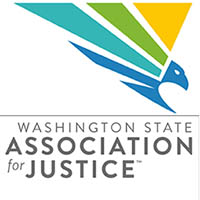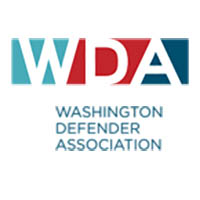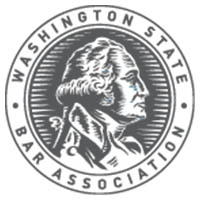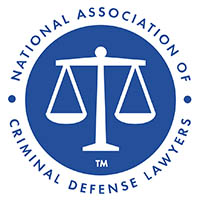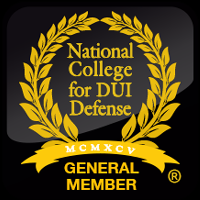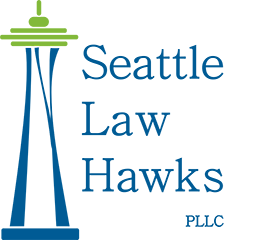
We win with tough defense - (206) 453-1800
Everett Traffic Tickets, How to Understand the Definitions
A work in progress. Below is a list of common terms associated with traffic ticket cases. I will update this list as I have time. I f you have a question about a particular term please contact me and I will add it to the list.
Affidavit:document containing sworn testimony. Washington Court Infraction Rules allow an officer to testify by way of affidavit instead of actual live testimony. For the affidavit to be admissible it must be properly sworn and signed under penalty of perjury. In speeding ticket cases this is the document contains the facts that support the charge including information concerning the identification and use of any speed measuring device.
Affidavit of Non-Responsibility: see "automated traffic safety camera" below. If the registered owner was not the driver when a traffic safety camera was issued, he or she can file an affidavit of non-responsibility. Most courts have a form to available to use. The registered owner must declare under oath that none of the registered owners was the driving at the time. While most forms are crafted to appear that you must identify the actual driver, the name of the person who was driving is not required under Washington law (exception, rental car companies and some other agencies must identify the actual owner)
Contested Hearing: in Washington State this is the "trial" for civil infractions. This is a driver\'s opportunity examine witness, present evidence and make legal arguments. The hearing is conducted pursuant to the Washington Courts Infraction Rules for Courts of Limited Jurisdiction. The judge (not a jury) makes the decisions on both the admissibility of evidence and the sufficiency of evidence. The prosecution has the burden to present evidence of guilt and the standard of proof to find a person committed the offense is a "Preponderance of the Evidence" (much less than "Beyond a Reasonable Doubt" standard in criminal cases).
Cross-Jurisdictional Authority: allows a law enforcement officer to enforce laws outside his or her jurisdiction. When a city or county grants authority for other police agencies to operate within it\'s area the permission must be in writing and should outline the scope and duration of authority.
Discovery (dx): discovery is the process of obtaining the evidence in a case. the term discovery is also used to refer to the documents and other evidence provided by one party to another. Both parties have an obligation to disclose anything they plan to use as evidence in their side of the case. The prosecution has the additional burden of supplying any potential Brady material (evidence in the possession of the State that may suggest the defendant did not commit the offense) to the defense.
Jurisdiction (jdx): In the context of traffic tickets, jurisdiction is whether the court has the authority to hear a particular case. There are three components to determine if a court has jurisdiction over your case; (1) the type of court, (2) where the infraction occurred and (3) what agency issued the ticket. Civil infractions can only be heard in a Municipal or District Courts district that includes the location of the incident (thus, if you received a speeding ticket in downtown Seattle from a Seattle Police officer the Seattle Municipal Court is the proper court, but if your ticketed for speeding by a Washington Sate Trooper on I-5 within the Seattle city limits the case should be filed in King County District Court). Furthermore, if a City Police Officer issued the ticket then the case is in Municipal Court; a sheriff's deputy or state trooper and the case is properly filed in county court. Jurisdiction also refers to whether an officer has the authority to issue a ticket in a given area
Mitigation: to mitigate is to lessen or temper the affect of something. In terms of a traffic ticket it means asking the judge to lower the fine. In order to mitigate a ticket you must first admit that you committed the offense. While this option may save you a few dollars in fine, it usually will cost a lot more than than in increased insurance rates.
"Moving" and "Non-Moving Violations": while Washington defines a moving violation as any infraction that is "committed by the driver of a vehicle, while the vehicle is moving."you can see from looking at the list of moving violations under Washington that this really isn't a completely accurate definition. More simply, anything that appears on the list in WAC 308-104-160 is a moving violation and any traffic tickets that do not are non-moving violations. The distinction is important because moving violations appear on your driving abstract and are reported to insurance companies. Non-moving violations are not reported to insurance company (and, depending on the violation, may also not be reportable to DOL).
Pre-Hearing Conference: The infraction rules allow a court to set a pre-hearing conference prior to a contested hearing if they so desire. The idea is to give the parties an opportunity to settle any issues prior to the contested hearing. In Seattle Municipal Court (and most other courts) this functions as a City scheduled mitigation hearing and is a waste of time if you are actually contesting the ticket.
Speed Measuring Device (SMD): Radar, Lidar, Speedometer or any other electronic device used to measure speed. There are many different brands of each type of device with many different features and limitations.
Speed Measuring Device Expert (SMD):technician trained in the operation, calibration and certification of speed measuring devices. Can offer expert testimony as to whether the device was properly maintained and/or used in accordance with under the correct instructions and procedures and in a manner that would result in accurate results.
Subpoena: a court order requiring a witness to appear in court. Under Washington rules, if you want the presence of the police officer in court, you must properly serve the officer and file the subpoena with the court. Any party, lawyer or the court can issue a subpoena in a traffic case. In accident cases, it is not uncommon for the City or State to subpoena witness to secure their testimony against the accused driver. (As a side note: issuing a subpoena for the officer and hoping he or she does not show up is not a great strategy in Washington for a number of reasons. The officer should only be subpoenaed if there is a specific reason to do so.)
Subpoena Duces Tecum: a court order to produce requested documents. In a traffic infraction case this can only be issued by a judge.
"AutomatedTraffic Safety Camera":also known as "red light cameras" and "speed zone cameras," these are stationary cameras that are synchronized with a traffic light or speed measuring device. Under Washington State law, these cameras are only authorized to be used in reduced speed school zones, intersections with traffic lights and toll booths. Law enforcement is limited to capturing images of vehicles only. Using images of the drivers in any way is not permissible. Tickets issued by the use of automated safety cameras are the legal equivalent of a parking ticket (they can be attached to the registered owner for collections, but are not reported to DOL or insurance companies). The registered owner is presumed to be the driver. If the registered owner was not driving at the time of the ticket, he or she may be able to file an Affidavit of Non-Responsibility.
